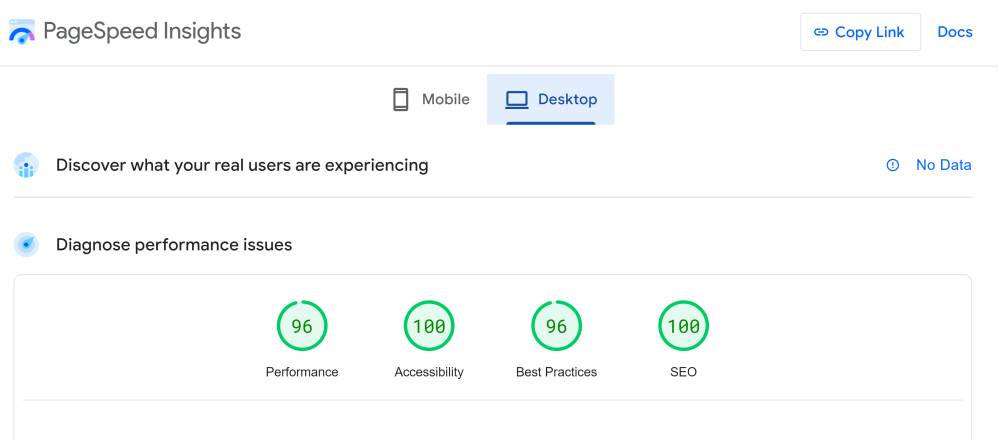Caching as Easy AS Pi
Published on March 23, 2024
Published on Wealthy Affiliate — a platform for building real online businesses with modern training and AI.
Saturday is my dedicated learning day. Today, I'm finally diving into something I've been wanting to understand better for months. I apologize if this appears as if it was intended for my audience, but it is. I have removed the links back to me and WA. However, I believe that it is important to understand this concept.
Bigger, Better, Faster, Stronger
Web caching improves website performance and user experience and Google is all about user experience. My site is currently sitting very well after the latest focus on the website side of the house. I am working to optimize a few things for implementing a PPC campaign.
- Fast Desktop sites do better.
- Understand Copywrite
- Put up a Pop-Up to collect emails
As you can see I have an ambitious weekend planned. The first part is done as you can see here.

Here are the top reasons why web caching is so important:
Faster Load Times - Caching allows content to be loaded from a local cache rather than retrieving it from the original server every time. This drastically speeds up load times.
Optimize Server Load - Caching reduces server load since common content isn't being continuously re-fetched from the main server. This improves scalability and prevents servers from getting overloaded.
Enhanced User Experience - Speedier websites mean fewer bounces and frustrated users. People appreciate the snappy, frictionless experiences that caching provides.
Better SEO/Rankings - Google assigns rankings based on site speed among other factors. Caching helps you load faster so search engines like your content more.
Reduce Bandwidth Usage - Stored cache files are smaller than dynamic content. Less data transfer means lower hosting and bandwidth costs over time.
Offline Access - Cached content allows pages to be accessible even when offline, improving usability for users on the go or with intermittent connections.
Easy Implementation - Most topics now support caching out of the box or via common plugins/CDNs. It's relatively simple to set up for great performance returns.
Easy as Pi
Caching is like your brain creating shortcuts to remember frequently accessed information quickly, rather than having to rethink every step. When you remember that PI = 3.141592 you can ignore the equation for Pi (π).
Pi is the ratio of a circle's circumference to its diameter. Mathematically, it is represented as:
π=C/d
Where:
π is the mathematical constant Pi.
C is the circumference of a circle.
d is the diameter of the circle.
This equation defines Pi as a constant value that remains the same regardless of the size of the circle. The value of Pi is approximately equal to 3.141592 and appears in various mathematical and physical formulas involving circles, spheres, and other geometric shapes.
Would you rather remember 3.141592 or π=C/d and do the calculations?
Just as your brain stores the value of Pi, website caching stores frequently accessed data like images, scripts, and content on a user's device or in a server's memory. This stored data is readily available for quick retrieval, reducing the load time every time the same user visits a webpage. This significantly speeds up website loading times and improves performance. This creates a smoother and more efficient browsing experience for your visitors.
Complicated It Is Not
So, how does caching function? You've got several players in the caching game: browser, server, and proxy.
Browser-side caching stores files locally on your computer. Your browser remembers what the site looked like the last time you visited. It loads the same files it found without "thinking" about it.
Server-side caching stores web pages on a temporary storage system, ready to be quickly served to you.
Proxy caching is a technique that stores copies of web content closer to users, allowing faster retrieval and reduced load times.
Ready to put this into action?
Start your free journey today — no credit card required.
No, Really It Is Not Complicated!
Wait a minute, I saw your eyes glaze over. Proxy? You understand Browsers like Chrome, Edge, Firefox, and Safari. Servers are where your website is "hosted". Places like Siterubix, Hostinger, Bluehost, and inMotion come to mind. Proxy? What is that? Proxies are intermediaries that act as messengers to fetch information for you. There are two types, Forward and Reverse Proxies.
Forward Proxy
Let's say that you live in Australia, and are looking at my site hosted in the US. Somewhere between here and there is a server where your home or office connects to the internet. Your service provider offers this server to ensure you have a faster connection. You like my site and visit frequently. Your service provider will keep a copy of my website on their servers for you.
This is a "forward" proxy. Forward proxies help with privacy by hiding your IP address. I do not get to see your IP address, I get your provider's location. Imagine if I could get your real IP address!?!
Reverse Proxy
The reverse is true. Here at Wealthy Affiliate our "host" is SiteRubix. SiteRubix has servers around the world. Since many Australian visitors view my content, SiteRubix will host a duplicate of my site on a server closest to or in Australia. This is a reverse proxy. You do not get my real IP address, otherwise you could hunt me down just to say thank you!
Utilizing caching enables the fastest page loading and alleviates server strain, particularly during periods of high traffic. Google loves us for it, our posts naturally load faster. The crucial aspect is efficiently storing and retrieving data while maintaining the website's freshness.
You Keep What?
These proxy servers will vary in the types of data they store for you. Some retain pages, others images, and some your database. Others keep everything! There are various methods like Content Delivery Network (CDN) caching, page caching, object caching, and database caching. Each serves a unique purpose, from enhancing static page delivery through CDNs to swiftly accessing objects and database queries.
Do you have a better understanding of proxies?
Now, that you know these fundamentals, let's move on to how you can apply them to WordPress sites to enhance their performance and solve common issues.
WordPress Plug-ins for CachingOne of the beautiful things about having your website hosted by SiteRubix and Wealthy Affiliate is the simple fact that additional caching plug-ins ARE NOT NEEDED. My simple invitation to take the complications out of your life.
Within Wealthy Affiliate sites, they have integrated advanced caching systems within our hosting setup. Hence, caching plugins like WP Rocket, W3 Total Cache, and WP Super Cache are blocked to avoid duplicating functionality and to ensure a streamlined user experience.
If you have websites outside of Wealthy Affiliate, you should check out the plug-ins I mentioned before.
A Possible Unknown Unknown for You
Another one of those "Did You Know" questions, involves secure HTTP protocols and the 'www' subdomain.
Did you know that https://www.xyz.com and https://xyz.com are treated as separate entities by browsers?
This division can create caching discrepancies if not managed correctly, potentially fragmenting your cache and leading to inefficiencies.
Problem Solved
Implement a consistent URL structure across your website and set up proper URL forwarding. This ensures users and search engines consistently reach the same version of your site, enabling effective caching and better SEO performance.
Monitoring and Testing Your Caching Strategy
It's important to monitor the performance of your caching strategy. Why? Because caching isn't just set-and-forget; it's an ongoing process that needs regular checks to ensure your WordPress site remains quick and responsive. You are adding pages, posts, and links constantly. You need to understand how each page affects your blog.
Clear Your Browser Cache
When evaluating your site's caching performance, real-world tests speak volumes. Visit your website after clearing your cache and observe the load times. Do this periodically and after any significant site updates to understand the real user experience.
When you clear your cache, you are clearing the browser cache. The browser cache stores temporary data such as images, scripts, and other elements of websites you visit. By clearing the browser cache, you ensure that your browser fetches the most recent versions of these elements from the web server, rather than using outdated cached versions.
Going Incognito
Using the incognito tab is not the same as clearing the browser cache. Opening a new incognito window creates a temporary browsing session that does not save your browsing history, cookies, or other data locally on your device. This means that any websites visited or information entered during the incognito session will not be stored on your device after closing the window.
On the other hand, clearing the browser cache involves deleting stored data like images, scripts, and other elements from previous browsing sessions to ensure that the browser fetches the most recent versions of these elements from the web server.
While incognito mode offers privacy by not saving local data, clearing the browser cache specifically removes stored files to refresh and update the browsing experience.
When All Else Fails, Clear Server Cache
Occasionally, you'll need to clear your site's cache. This is usually necessary after a site update or when you're troubleshooting a problem. While caching improves speed, it can also serve outdated content if not managed properly.
For testing, platforms like GTmetrix, and Google's PageSpeed Insights can offer insights into how caching affects your site's performance. These tools can simulate user interactions and provide useful analytics.
Get It DoneImplementing an effective caching strategy is one of the most impactful optimizations any website owner can make. By storing commonly accessed assets like images, scripts, and pages on the browser and server, loading webpages becomes vastly quicker for site visitors. Caching also lightens the load on hosting resources, keeping costs manageable as traffic grows over time.
Faster load speeds create a smoother experience that keeps users engaged instead of frustrated by delays. Search engines likewise reward snappier sites with improved rankings. Not to mention the boost in conversions that speed can provide as people navigate with ease.
Enjoy the Day
Share this insight
This conversation is happening inside the community.
Join free to continue it.The Internet Changed. Now It Is Time to Build Differently.
If this article resonated, the next step is learning how to apply it. Inside Wealthy Affiliate, we break this down into practical steps you can use to build a real online business.
No credit card. Instant access.
